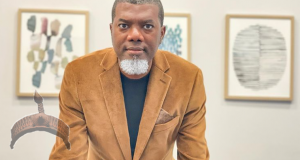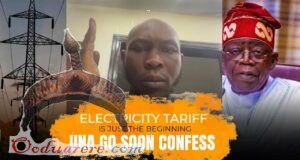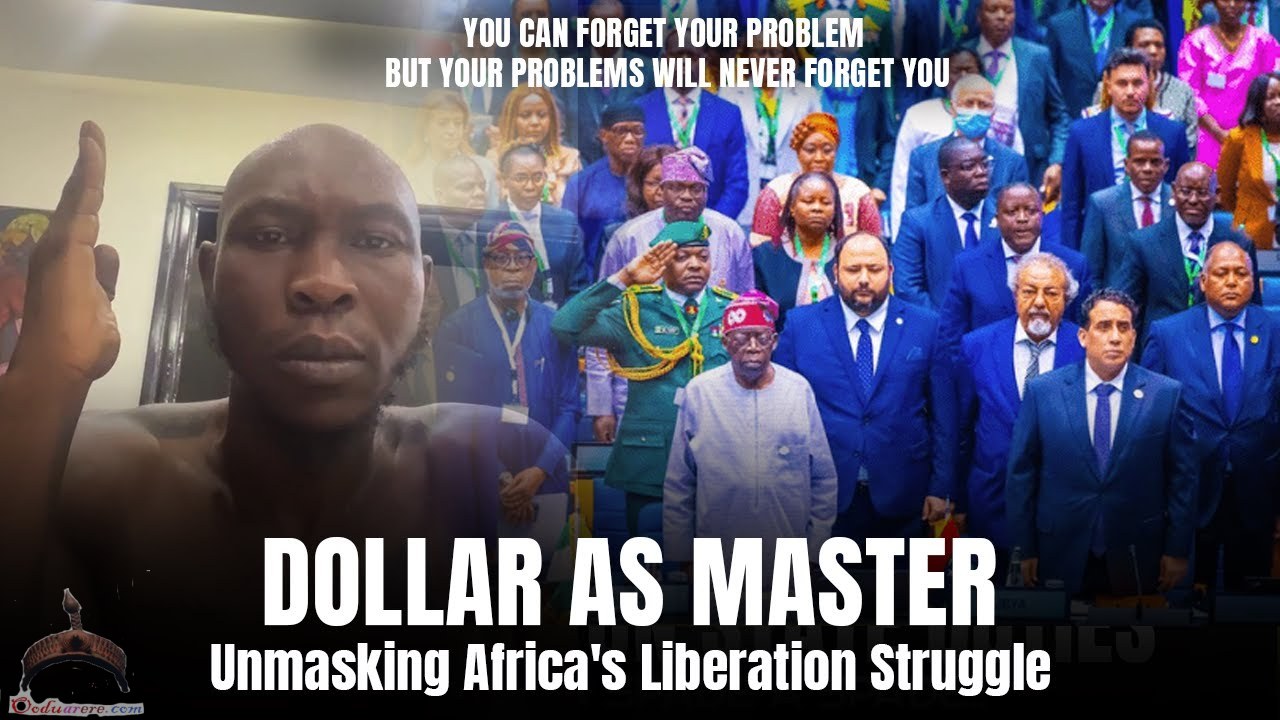In the United States, over 3.5 million people experience homelessness every year. The homeless include people from all ethnic backgrounds and discipline. This number includes 35 per cent of the homeless population families with children.
In recent years, the number of homeless immigrants, documented or undocumented, has doubled as America continues to experience immigration challenges.
John Atari (not real name.) was once an undocumented immigrant in the US. He was also homeless and an alcoholic. He left Nigeria in the early 1980s in search of better life. After more than 30 years in America,with no home and dependent on substance abuse and alcohol, John, few years ago, returned to Nigeria, somewhere near Port Harcourt. He agreed to share his story here on JEBOSE BOULEVARD, on two conditions: we must change his last name and not use his photographs. “I hope people would learn from my experience. That’s why I agreed to share this story.”
This is a compelling narrative:
“I left Port Harcourt more than 35 years ago. I missed the sights and sounds of the Garden City; the intrigues of dusty roads and the smells of combusted market places, filled with everyday people hustling to survive through the day. I missed those days, when plantain sellers hawked by the roadside. I thought I might never see these parts of my life again. I retained faded memory of childhood, the path that led me to, in some strange ways, where I am today, back to this peaceful place called home. I used to sit in shopping mall parking lots, in the cold weather of the US, waiting endlessly for sunset.
“A lot happened to me, I have advanced type two diabetes. I am also suffering from a cardiovascular disease. I am living on borrowed time, supported by several medications. I don’t have a wife or family except my sister and the church that rescued me when I returned two years ago, after living in America for nearly 35 years, as a homeless alcoholic. I didn’t have Green Card to find a decent job. Even if I did get a job, I was not sober enough most days to keep my job. I hustled for odd jobs to maintain my passion for alcoholic beverages. It didn’t have to be that way. I occasionally engaged as a gypsy taxicab driver in the city. I lived beyond minimum wage as I began to hang around other homeless Americans in that city. During winter time, I would ride in the city’s mass transit bus all day, just to get warm and during severe weather conditions, I checked into the Salvation Army or Rescue Mission shelter homes to get warmth, food and shelter. I had been homeless until one Nigerian asked me to come and drive cab for his company. I drove with no licence, no cab permit. I took a huge risk to survive and hoped I didn’t get pulled over on any highway or street by the police as it would be the end of my stay in America. But the urge to binge on alcohol ruined my chances. Alcohol destroyed me. I was caught. I had been diagnosed then with heart failure. I was handed over to the Immigration and Customs Enforcement and placed for deportation. I stayed 45 days at the Homeland Security Detention Centre in Atlanta, awaiting my court appearance. The day I appeared, the judge allowed me to continue to live in the country on humanitarian grounds. I was sick and he was compassionate about my health. The angels were redirecting me. But I was not helping myself. As soon as I came out of the ICE detention, I went back to the streets and celebrated my release with a bottle of vodka and purchased a five-dollar sweepstakes scratch card. That day, I won $500 from the scratch. What did you expect from a homeless alcoholic that just won $500 from scratch card?
“Jebose, Nigeria was experimenting on a second chance at democracy, the beginning of the 80s when I left. I had passed my secondary school education two years earlier and stayed unemployed. I desired to further my education, but my family had no money to support my dream. Unemployment in the country then was at its highest; school graduates had no jobs. Crime was the only trade available for the heartless. I refused to be a part of the neighbourhood boys terrorising our community at nights, robbing and maiming the helpless and innocent, while they were resting in their homes. My mother was a housewife and a clothes mender, helping families to stitch their ragged clothing in those hard times. After I passed my West African Senior Secondary Certificate Examination, I begged mother to loan me her sewing machine. She was happy that I was going out to hustle on my own. I began to hawk as a mobile tailor, walking the neighbourhood and its surroundings all day, stitching clothes for residents. I was self-employed for the next three years. I worked so hard and was determined to do something better with my life: I became obsessed with travelling and studying overseas. Three and half years later, I was able to save enough money to apply for a university admission in Toronto, Canada.
“Canada was a culture shock, but I quickly blended into its mainstream culture, focused on my future and education. Four years after my arrival at this university, I earned my first degree in chemistry. I was hired by a biochemical company during my last year at the university. The employment changed my world. I met this charming American beauty. She was a researcher, but loved partying more than researching. She saw me as a handsome gentleman with a seductive and sexy exotic accent. The attraction for each other was steamy. We began casual dating that blossomed and four months later, it grew into a serious affair. She invited me to return with her to America. She helped process the US work authorisation. Jebose, I couldn’t resist moving to the US with who I considered then as the love of my life. We eventually got engaged… Her name was Deborah.
“We settled as a couple in America. I got a transfer from the Canadian firm to the US and Deborah also found a job. Life seemed great for the next three years until I returned home one day in the early spring of the 90s and discovered that Deborah had moved out. She left a note that she was moving across town with a 22-year-old plumber. I was devastated. I never recovered from that heartbreak.
“After my fiancée eloped with our apartment handyman, I began to live vicariously in America and I seriously didn’t know how times flew and left me behind, consoling myself with bottles of vodka every day. My careless and irresponsible lifestyle manifested in my daily work and behaviour. I would ooze alcohol at work. The company provided me with therapy for substance abuse and alcoholism dependence. It didn’t work. I didn’t care. The company had to let me go after my work authorisation expired. I came to America seeking a fulfilled dream, but I ended up as a poster child for American immigrant nightmare.
“My father died in 1996. I felt a lot of guilt from his death. I went into serious depression. My mother died two years later and my world collapsed. I did not come home for their funerals. Those that I shared life and dreams with were slowly departing from my life. A part of me left with these close family members. My life distanced from my birth place. I was ashamed of returning to Port Harcourt as a loser, years after I travelled overseas for best life opportunities.
“I turned to alcohol to numb the pains and disappointments of living in America and losing my parents. I became a heavy alcoholic, secretly engaging in the ‘recreation’ whenever I had the opportunity. I became homeless and avoided few Nigerian friends that I had met in the early years when I came to this place. The Rivers State community in my city heard of my circumstance and began an engagement with me. Few years ago, I had stroke. I am diabetic. I was also diagnosed with heart disease. These illnesses were the effects of unstable lifestyle in America. I had nothing. I went to the Baptist Church every day for my meals, then roamed the city endlessly, carrying my trash bag that contained dirty clothes and, always, a bottle of vodka to sip at any city park. I got donated clothes from the rescue mission or the Salvation Army. The Urban Ministries also provided me with free medical health for my sickness.
“During my stay at the hospital for stroke treatment, friends from Rivers State visited me and began to encourage me to consider returning home. It was a difficult decision: a home I left more than 30 years earlier. I had never visited. One of my statesmen contacted my sister and she encouraged me to return, promising to take care of me. I was still ill. I needed regular medications to treat diabetes and heart problems. I got these meds free in America. I began to think seriously of going back home. I was not getting any younger. I was in my late 50s and I must close this chapter of my life. After I came out of physical therapy, I took an offer from Rivers State; it promised to pay for my flight ticket to return to Nigeria. Today, I live happily with my sister in our village near Port Harcourt. I am serving the Lord and praising his worthiness for this new life. Alcoholism and homelessness are past experiences. I feel a healing power in me as every day is an adventure here in my village.”
 Ọmọ Oòduà Naija Gist | News From Nigeria | Entertainment gist Nigeria|Networking|News.. Visit for Nigeria breaking news , Nigerian Movies , Naija music , Jobs In Nigeria , Naija News , Nollywood, Gist and more
Ọmọ Oòduà Naija Gist | News From Nigeria | Entertainment gist Nigeria|Networking|News.. Visit for Nigeria breaking news , Nigerian Movies , Naija music , Jobs In Nigeria , Naija News , Nollywood, Gist and more









